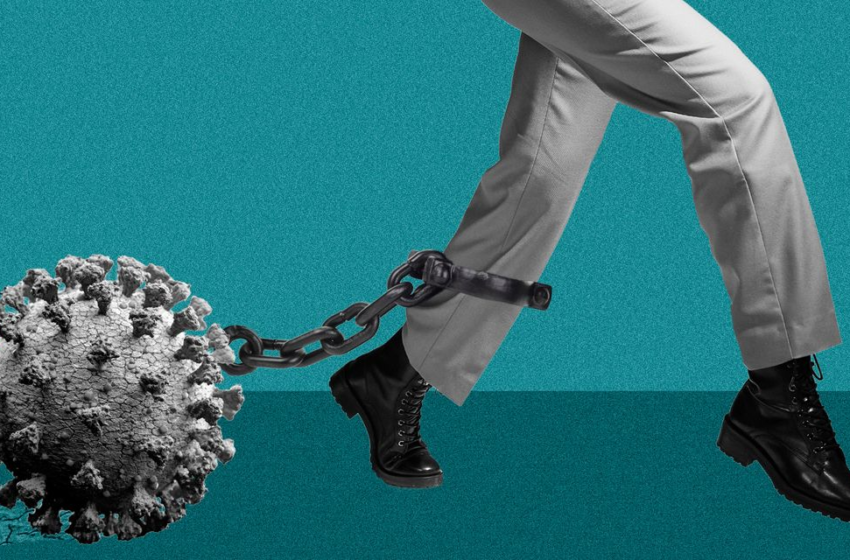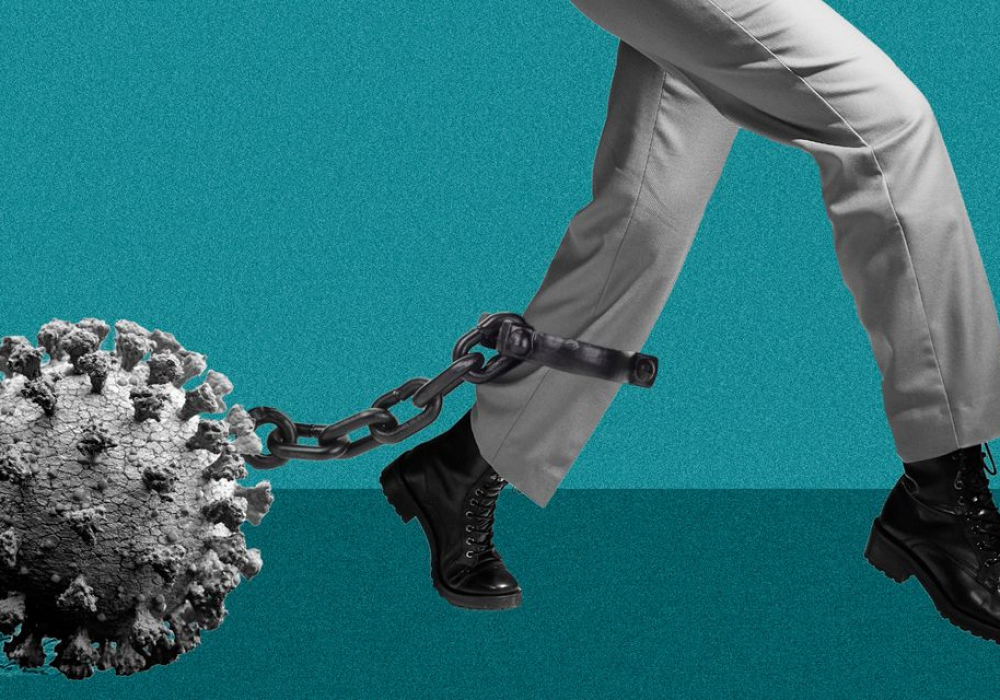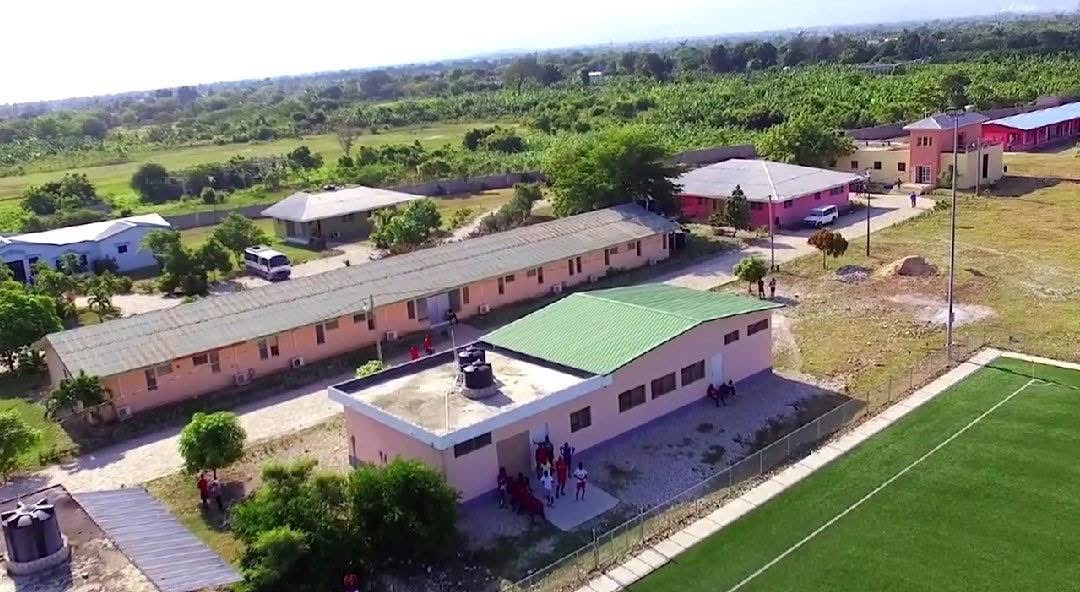Asthma. Unhealthy gut bacteria. The presence of autoantibodies, usually associated with autoimmune conditions.
These are among the risk factors identified in new studies as potentially making someone at greater risk of developing long Covid, a condition in which wide-ranging symptoms such as fatigue, brain fog and racing heart rate persist months after an initial Covid-19 infection.
The studies help advance scientists’ understanding of the biology behind long Covid, and provide clues to potential treatments. Patients with autoantibodies, for instance, might get relief from existing treatments for lupus, an autoimmune disease.
The variety of reasons one person might get long Covid and another might not also reinforce scientists’ increasing belief that there won’t be a single cause or treatment for the condition.
“This is really important because we really didn’t understand the exact biological risk factors for long Covid,” says
Linda Geng,
co-director of the Stanford Post-Acute Covid-19 Syndrome Clinic, who wasn’t involved in any of the studies.
In a study published in the journal Cell, scientists identified four risk factors, for which scientists tested upon a patient’s initial diagnosis. The most prevalent one was the presence of certain autoantibodies, which are antibodies that mistakenly attack the body in autoimmune conditions such as lupus. Researchers found the autoantibodies in about 60% of the patients who developed long Covid.
Most patients didn’t have a diagnosed autoimmune disease, but rather had very low levels of autoantibodies associated with various autoimmune diseases, says
Jim Heath,
senior author on the study and president and professor of the Institute for Systems Biology, a nonprofit biomedical research organization in Seattle.
A second risk factor was reactivated Epstein-Barr virus. Epstein-Barr is what causes mononucleosis and infects about 90% of people. Normally, the virus remains dormant afterward. The study found that it was reactivated in some people who later developed long Covid.
“Your immune system is probably doing a reasonable job of keeping EBV in check and with a SARS-CoV-2 infection you lose that brake,” says Dr. Heath. “It seems to happen very early in an infection.”
Two other risk factors were Type 2 diabetes and the detection of genetic material from SARS-CoV-2 in the blood, which means the virus escaped the lungs and is spreading to other parts of the body.
The researchers collected and analyzed blood and swab samples from more than 200 Covid-19 patients up to two to three months post-infection. The majority of patients were hospitalized for Covid but the tests were replicated on a separate group of roughly 100 patients with mostly mild Covid-19 infections. The tests were also conducted on about 460 healthy people in a control group.
“Have you or someone you know battled long Covid? Join the conversation below and share your experience.”
The researchers are hoping to use their findings to identify potential treatment options to prevent long Covid. For example, people who have the virus in the blood might be treated with one of the new Covid antiviral drugs.
The researchers also found that some long Covid patients have very depleted levels of the cortisol hormone, resulting in Addison’s disease, which has symptoms such as fatigue and muscle aches. Addison’s patients are often treated with cortisol replacement therapy.
The finding is important because doctors can test and treat the problem with existing therapies, says
Claire Steves,
a geriatrician and clinical academic at King’s College London, who also studies risk factors for long Covid.
Timothy Henrich,
an associate professor of medicine at the University of California, San Francisco, who is also studying long Covid patients, said the Cell study was well done. But he noted that it looked at patients only two to three months after their initial infection.
In a separate new study in Nature Communications, researchers from Switzerland found five different factors that they concluded will help predict who will develop long Covid.
The most prominent: lower levels of two types of immunoglobulin, IgM and IgG3, which are types of antibodies, says
Onur Boyman,
senior author of the study and professor and chair of clinical immunology and allergology at the University of Zurich.
Other predictors included being older, a history of asthma, and symptoms of fever, fatigue, cough, difficulty breathing and gastrointestinal issues during an acute Covid-19 infection. People who developed long Covid had on average three of those symptoms during their initial infection.
The researchers looked at 175 Covid-19 patients and compared the findings to about 40 healthy controls. They confirmed the findings in a separate group of 395 Covid-19 patients. Some people had all the risk factors while others had fewer, says Dr. Boyman.
The goal, says Dr. Boyman, was to find indicators in the body that are easy to test for. The two immunoglobulins they identified are fairly stable, he says, and not related to the SARS-CoV-2 infection.
In the third study, published in the journal Gut, researchers in Hong Kong analyzed the gut microbiome of more than 100 Covid-19 patients at the time of their initial infection, one month later, and again six months later. They compared the results to a control group of 68 healthy people.
The gut microbiome is the bacteria and other microorganisms that live in our digestive tract. Researchers found that Covid-19 patients with healthy gut bacteria were less likely to develop long Covid and had a microbiome similar to people in the healthy control group. Patients who went on to develop long Covid had a less diverse and abundant microbiome.
“It’s an interesting hypothesis that the gut microbiome may be involved in the process of long Covid,” said Dr. Steves, who wasn’t involved in the study. She noted that in general when people are sick their microbiome changes, so more data is needed to see if changing the gut microbiome might work as a treatment.
While promising, the findings in all of the studies need to be tested further in larger groups of people, says
Steven Deeks,
professor of medicine at the University of California, San Francisco, who wasn’t involved in the studies and is heading a separate study on long Covid.
“When you study a million things in a few people you’re going to find a lot of stuff and not all of it is real,” says Dr. Deeks.
Write to Sumathi Reddy at sumathi.reddy@wsj.com
Copyright ©2022 Dow Jones & Company, Inc. All Rights Reserved. 87990cbe856818d5eddac44c7b1cdeb8












